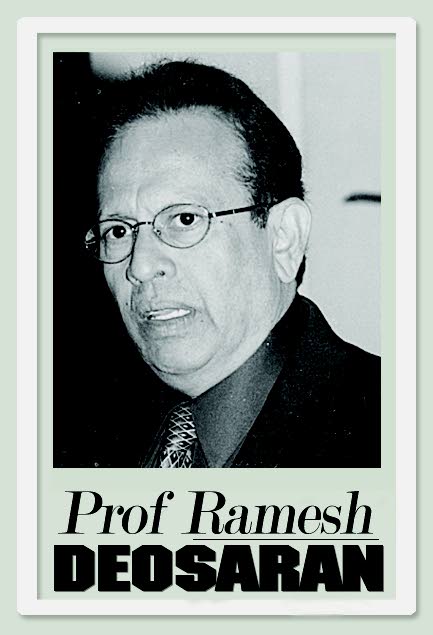Political footballs

Football. This is described as “ an outdoor game between two teams played with a ball on a pitch with goals at each end.”
The other dictionary meaning is “a topical issue or problem that is the subject of continued argument or controversy.” (Concise Oxford) That is, a problem that is being kicked around for years without clear solution.
I was surprised to know this second meaning reached the reputable dictionary. Perhaps because all around the world there are so many “topical problems”–big and not so big– just being kicked around for so long, facing competing interests with no solution. India vs Pakistan on Kashmir, Israel vs Palestine on a two-state solution, Spain’s Catalonia separatist challenge, etc, and closer home, there is the Caribbean Single Market and Economy (CSME) as one example.
Looking back, this country has produced several notable political footballs, that is, “topical issues” that have been kicked around and around with no solution. In real football, there is an end to the game with decisive referees, aided by technology, bringing clear solutions. In political football, many players, even referees, have a vested interest in keeping the issue suspended by “continued argument or controversy.” Let’s take constitutional reform as a political football.
Pressed by Black Power protests, political agitation and media concerns, there was an elaborate Constitution Reform Commission Report in 1974. We got a little reform in 1976, apparently leaving the fundamentals for later. Since 1976, and bothered by several contentious issues, constitution reform remains muddled in continued arguments. Do we need it or not?
Some political footballs are in the minor league, for example, bringing law and order reforms to URP, PH taxis, squatting and street-side vending, with these and more being kicked around for the last 30 years. No clear solutions.
A major difference between political football and real football, such as those now seen in the World Cup, is that political footballs either have no fixed rules or that the rules are not obeyed or worse yet, the rules are not properly applied. Political footballs, improperly refereed, have therefore degenerated into an “everyman for himself” thing such that even the referees and linesmen have surrendered to continued disorder. Real footballers look for goals; political footballers inevitably look for votes, most of which are lodged in the very “topical issues” that need cleaning up. A tough game!
Like FIFA itself, the structure in political football may be good but it is the players who surreptitiously cross the lines, committing the foulest of deeds, betraying trust, without penalty while drowning the appeals of nobler players. Given continuing threats from either side, loyalty in political football is most precious, often above ability.
In the major league of political footballs here, there are, for example, corrupted state boards, the death penalty and controversial election financing–kicked around for 30 years with recycled controversies. You see, in political football every team can make its own rules along the way, even backed by significant sponsorship from the stands. So the “topical issue” gets kicked around, yes, but with political legitimacy.
Indeed, with free tickets every five years, political football is an exciting spectacle, maybe not as enjoyable as Portugal’s Cristiano Ronaldo’s star-headed goal into Morocco’s net. Or Croatia whipping Argentina 3-0 in the roughest game so far, leaving Maradona and many others tear-filled in the stands. Even after nobly straining every sinew, defeated teams usually face a barrage of criticisms on their return home. Unforgiving fans have since labelled Lionel Messi “Missing Messi” for missing a penalty and several other close-up shots. Real football is not very forgiving.
Political football is very forgiving, very tolerant, with a remarkable ability to recycle issues. In real football, countries take their teams very seriously. One Russian MP, Vitaly Milonov, says the Russian team is “fighting for the honour of our country.” He and several other MPs have drafted a bill to make criticism of the Russian team an offence, with a US$160 fine.
In political football, the goal-post is always moving, foul-up players are rarely fined. The game goes on. No wonder the dictionary also defines football as “a topical issue or problem that is the subject of continued argument or controversy.” Maybe there should be a World Cup for political football too.

Comments
"Political footballs"